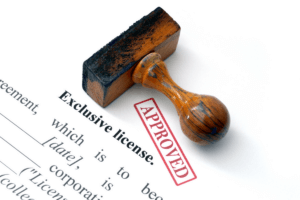It won’t be long before the spring winds arrive and the dust settles across the Texas Panhandle, and the time to enjoy a motorcycle ride on the open roads begins. Becoming familiar with Texas motorcycle laws is one way to keep you safe and coming home.
Lane Splitting in Texas is an Illegal Move
The speed and small size of motorcycles make it easy to maneuver them through traffic. Riders may be tempted to zig and zag between cars to split lanes to get ahead of stalled traffic. However, in Texas, it is officially illegal to split lanes, and doing so can result in the following:
- Ticketing and fines
- Points added to your license
- Reduced chance of being compensated for your injuries if lane splitting leads to an accident
Medical care in Texas is costly. Even when an accident results from the other driver’s fault, the act of lane splitting can be used against you to reduce the compensation you receive, if any.
Even when an accident results from the other driver’s fault, the act of lane splitting can be used against you to reduce the compensation you receive, if any.
Texas uses a modified comparative negligence rule in personal injury claims, meaning you could wind up receiving less compensation if you are found partly at fault for a crash. Protect your physical and financial safety by resisting the urge to split lanes on a motorcycle in Texas.
Motorcycles Have Full-Lane Access
The same law that explicitly made lane-splitting illegal also granted motorcyclists more room on the road. Now, motorcyclists can take advantage of the entire lane as they travel.
Motorcyclists are permitted to travel in a lane two riders abreast, but any more than two abreast in a lane is prohibited.
Ensure Your Motorcycle License Is Valid
Anyone operating a motorcycle on public roads in Texas must obtain a specific license or apply for an endorsement with a standard Texas driver’s license. Completing an approved motorcycle safety course allows a driver to get a Class M license. The driver must present a certificate of completion at a Texas licensing office which is valid for 24 months.
- A valid motorcycle license acquired in another state removes the motorcycle safety course requirement.
- Minors aged 15-17 must complete additional steps to operate a motorcycle in Texas.
- Restrictions may be placed on a Class M license until further steps are met, which are used to enhance specific drivers’ performance.
- Active duty military are exempt from meeting the Texas residency requirements. A copy of a military ID must be presented to obtain a Class M license when no Texas address is registered.
Helmet Requirements May Apply

Riders under 21 must wear helmets to ride on or operate a motorcycle.
It is worth noting these statistics from the National Highway Traffic Safety Administration (NHTSA):
- Motorcycle riders wearing helmets experience up to 73% lower fatality rates than those not wearing helmets.
- 85% of riders wearing helmets have a reduced rate of critical, severe, or serious injuries.
- A motorcycle helmet is successful 67% of the time at brain injury prevention.
- Not wearing a helmet makes it three times more likely that you will suffer a brain injury in the event of a motorcycle crash.
These findings were based on a review of 46 studies on laws applying to motorcycle helmet use. The Texas Department of Transportation (TxDOT) documented 7,818 annual motorcycle accidents in its most recent annual reports. Texas law enforcement may not stop a motorcyclist only to determine if the exemptions to wearing a helmet mentioned above apply.
Insurance Requirements for Texas Motorcyclists
All motor vehicle owners in Texas must carry liability insurance. Failure to follow the insurance laws in Texas can result in fines and the potential of having to carry SR-22 insurance coverage. Motorcycle insurance coverage in Texas must include the following:
- $30,000 per person for personal injury
- $60,000 for multiple injuries
- $25,000 for property damage
Liability only covers the damage caused to others. If you have been injured in a motorcycle crash in Texas caused by someone else’s negligence, speak to a Lubbock motorcycle accident lawyer for help with securing financial compensation.
Motorcycle Registration, Inspection, and License Plates Are Required

Unless your motorcycle was manufactured before 1975, a daytime headlight (Sec. 547.801.d) is required. In addition, a valid license plate must be affixed to the motorcycle at all times on the bike’s rear. The rider must also have documents showing current insurance, proof of ownership, and payment of applicable fees to the County Tax Assessor.
No Passengers Under Five
If your motorcycle has a sidecar, you are allowed to transport a passenger under the age of five in it. However, that same young passenger cannot ride on the back of a motorcycle.
The law also requires any passenger on a bike to ride on a permanent seat behind or to the driver’s side, and handholds and footrests must be available for any passenger.
Endangering a child by failing to comply with these laws is a punishable offense.
Protecting Against Accidents by Following Texas Motorcycle Laws
Texas motorcycle laws are ultimately for the safety of the riders traveling with other motor vehicles and trucks across the state. As with any vehicle, safety is often a matter of choice that never interferes with an enjoyable experience on Texas highways. Consider these safety tips while operating a motorcycle in Texas:
- Drinking and biking is against Texas law. Designate a driver to take care of your bike and get you home safely.
- Experiencing hazardous weather conditions on a bike is more threatening than in a motor vehicle with more traction and road contact. Take a break to ride out Texas storms, which usually pass quickly.
- Maintain a motorcycle to provide ultimate safety. Worn tires and a poorly maintained braking system put a driver and any passengers in greater danger than necessary.
- Consider your skill level when investing in a motorcycle. Not all bikes are created equally, and riding more motorcycle than you can handle puts everyone at risk.
Whether traveling north, skirting along the rim of Palo Duro Canyon, or heading south to take in the borderlands of Texas in Big Bend and any points east to west, following Texas’ motorcycle laws keeps you and the passengers that travel with you safe. Ted Liggett and Liggett Law Group have comprehensive experience in representing victims, seeking out the maximum compensation available for recovery from injuries from motorcycle accidents in Texas.

